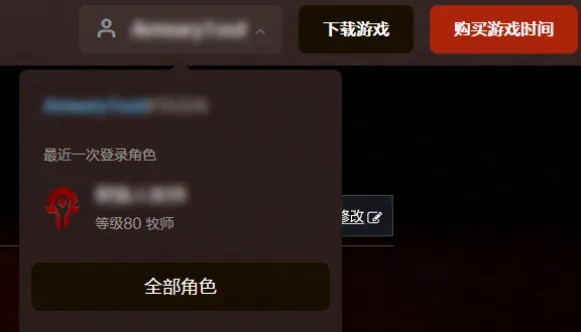使用GNU ReadLine Library实现命令解析器
时间:2010-05-31 来源:creatory
使用GNU ReadLine Library实现命令解析器(历史记录,Tab自动补全等)
#include <stdio.h>
#include <sys/types.h>
#include <sys/file.h>
#include <sys/stat.h>
#include <sys/errno.h> #include <readline/readline.h>
#include <readline/history.h> extern char *getwd ();
extern char *xmalloc (); /* The names of functions that actually do the manipulation. */
int com_list (char*);
int com_view (char*);
int com_rename (char*);
int com_stat (char*);
int com_pwd (char*);
int com_delete (char*);
int com_help (char*);
int com_cd (char*);
int com_quit (char*); /* A structure which contains information on the commands this program
can understand. */ typedef struct {
char *name; /* User printable name of the function. */
Function *func; /* Function to call to do the job. */
char *doc; /* Documentation for this function. */
} COMMAND; COMMAND commands[] = {
{ "cd", com_cd, "Change to directory DIR" },
{ "delete", com_delete, "Delete FILE" },
{ "help", com_help, "Display this text" },
{ "?", com_help, "Synonym for `help'" },
{ "list", com_list, "List files in DIR" },
{ "ls", com_list, "Synonym for `list'" },
{ "pwd", com_pwd, "Print the current working directory" },
{ "quit", com_quit, "Quit using Fileman" },
{ "rename", com_rename, "Rename FILE to NEWNAME" },
{ "stat", com_stat, "Print out statistics on FILE" },
{ "view", com_view, "View the contents of FILE" },
{ (char *)NULL, (Function *)NULL, (char *)NULL }
}; /* Forward declarations. */
char *stripwhite ();
COMMAND *find_command (); /* The name of this program, as taken from argv[0]. */
char *progname; /* When non-zero, this global means the user is done using this program. */
int done; int
main (argc, argv)
int argc;
char **argv;
{
char *line, *s; progname = argv[0]; initialize_readline (); /* Bind our completer. */ /* Loop reading and executing lines until the user quits. */
for ( ; done == 0; )
{
line = readline ("Jimmy: "); if (!line)
break; /* Remove leading and trailing whitespace from the line.
Then, if there is anything left, add it to the history list
and execute it. */
s = stripwhite (line); if (*s)
{
add_history (s);
execute_line (s);
} free (line);
}
exit (0);
} /* Execute a command line. */
int
execute_line (line)
char *line;
{
register int i;
COMMAND *command;
char *word; /* Isolate the command word. */
i = 0;
while (line[i] && isspace (line[i]))
i++;
word = line + i; while (line[i] && !isspace (line[i]))
i++; if (line[i])
line[i++] = '\0'; command = find_command (word); if (!command)
{
fprintf (stderr, "%s: No such command for FileMan.\n", word);
return (-1);
} /* Get argument to command, if any. */
while (isspace (line[i]))
i++; word = line + i; /* Call the function. */
return ((*(command->func)) (word));
} /* Look up NAME as the name of a command, and return a pointer to that
command. Return a NULL pointer if NAME isn't a command name. */
C
#include <sys/types.h>
#include <sys/file.h>
#include <sys/stat.h>
#include <sys/errno.h> #include <readline/readline.h>
#include <readline/history.h> extern char *getwd ();
extern char *xmalloc (); /* The names of functions that actually do the manipulation. */
int com_list (char*);
int com_view (char*);
int com_rename (char*);
int com_stat (char*);
int com_pwd (char*);
int com_delete (char*);
int com_help (char*);
int com_cd (char*);
int com_quit (char*); /* A structure which contains information on the commands this program
can understand. */ typedef struct {
char *name; /* User printable name of the function. */
Function *func; /* Function to call to do the job. */
char *doc; /* Documentation for this function. */
} COMMAND; COMMAND commands[] = {
{ "cd", com_cd, "Change to directory DIR" },
{ "delete", com_delete, "Delete FILE" },
{ "help", com_help, "Display this text" },
{ "?", com_help, "Synonym for `help'" },
{ "list", com_list, "List files in DIR" },
{ "ls", com_list, "Synonym for `list'" },
{ "pwd", com_pwd, "Print the current working directory" },
{ "quit", com_quit, "Quit using Fileman" },
{ "rename", com_rename, "Rename FILE to NEWNAME" },
{ "stat", com_stat, "Print out statistics on FILE" },
{ "view", com_view, "View the contents of FILE" },
{ (char *)NULL, (Function *)NULL, (char *)NULL }
}; /* Forward declarations. */
char *stripwhite ();
COMMAND *find_command (); /* The name of this program, as taken from argv[0]. */
char *progname; /* When non-zero, this global means the user is done using this program. */
int done; int
main (argc, argv)
int argc;
char **argv;
{
char *line, *s; progname = argv[0]; initialize_readline (); /* Bind our completer. */ /* Loop reading and executing lines until the user quits. */
for ( ; done == 0; )
{
line = readline ("Jimmy: "); if (!line)
break; /* Remove leading and trailing whitespace from the line.
Then, if there is anything left, add it to the history list
and execute it. */
s = stripwhite (line); if (*s)
{
add_history (s);
execute_line (s);
} free (line);
}
exit (0);
} /* Execute a command line. */
int
execute_line (line)
char *line;
{
register int i;
COMMAND *command;
char *word; /* Isolate the command word. */
i = 0;
while (line[i] && isspace (line[i]))
i++;
word = line + i; while (line[i] && !isspace (line[i]))
i++; if (line[i])
line[i++] = '\0'; command = find_command (word); if (!command)
{
fprintf (stderr, "%s: No such command for FileMan.\n", word);
return (-1);
} /* Get argument to command, if any. */
while (isspace (line[i]))
i++; word = line + i; /* Call the function. */
return ((*(command->func)) (word));
} /* Look up NAME as the name of a command, and return a pointer to that
command. Return a NULL pointer if NAME isn't a command name. */
C
相关阅读 更多 +










